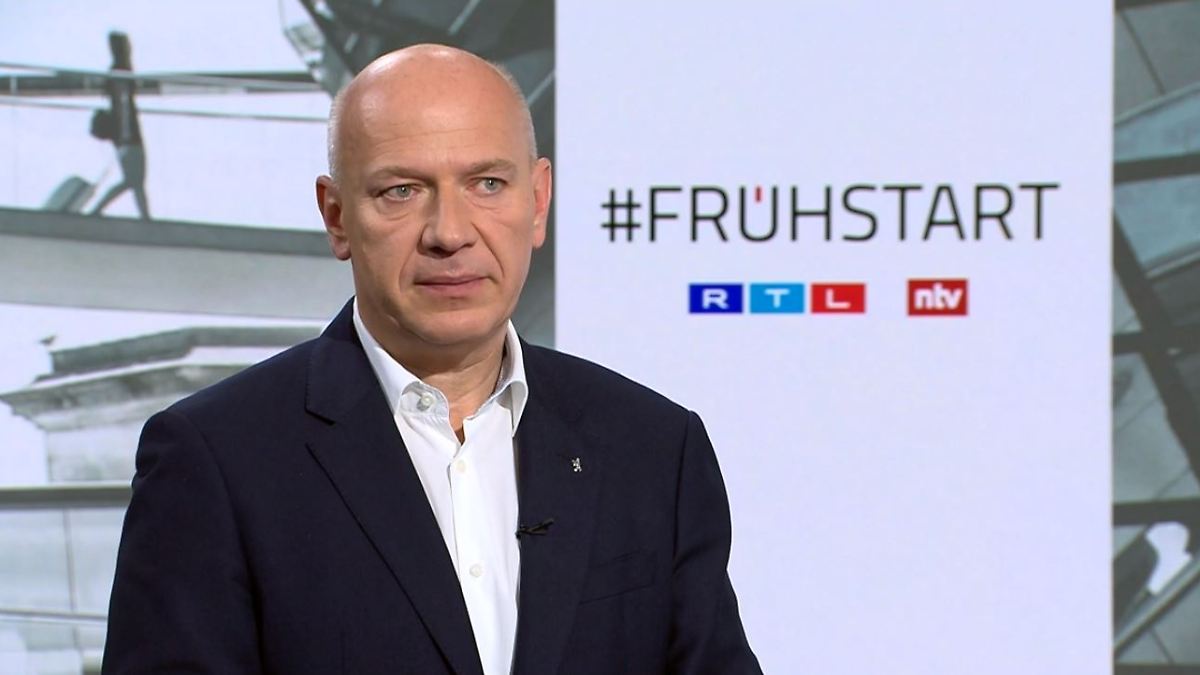Kai Wegner in the “ntv early start”
“We have reached a tipping point”
This audio version was artificially generated. More info | Send feedback
Nothing less than democracy is in danger because of the migration crisis, said the Governing Mayor of Berlin, Kai Wegner, in ntv's “Early Start”. Instead of arguing, the government and opposition urgently need to present common solutions.
Berlin's governing mayor Kai Wegner sees democracy in danger in view of the migration crisis in Germany. “We have reached a tipping point where our democracy is at stake, where people also expect us to solve it,” said the CDU politician in the “ntv Frühstart”. The government and opposition should overcome the crisis together. “That worked before, in the late 80s and early 90s. A joint effort was made, the constitution was changed. And we're at that point again now.” In Wegner's opinion, the problem must be solved urgently. “Every day of conflict creates further uncertainty among people and does not strengthen our democracy. And that is important to me.”
Around 250 refugees arrive in Berlin every day, and the trend is rising. “We no longer have any accommodation capacity, there are no more places available,” the head of government continued. But they want to create additional capacity, for example at the former Tegel and Tempelhof airports. “Closing gymnasiums, as an example, is out of the question for me. That should only be the very last step at most.” According to Wegner, the number of refugees is in some cases higher than in 2015/2016. “This is a big challenge that we have to overcome here every day.”
Wegner is critical of the Eastern summit in the Federal Chancellery called for by Left Party leader Dietmar Bartsch. “I don't know whether we now need a pure summit for East Germany, because we generally have problems in Germany when it comes to economic development, inflation, and much more.” Berlin is an East German federal state and is automatically included in the meetings of the East German federal states. “This is essentially a summit where we represent East German interests together,” he continued.
With a view to the upcoming anniversary of German unity, he said: “A lot of things have really been brought together, and often you don't even know anymore where the wall actually stood.” The younger generation in particular does not know the former border. “And that's the chance we now have for Berlin to be thought of as a city. And that's what we're doing in Berlin too.”




